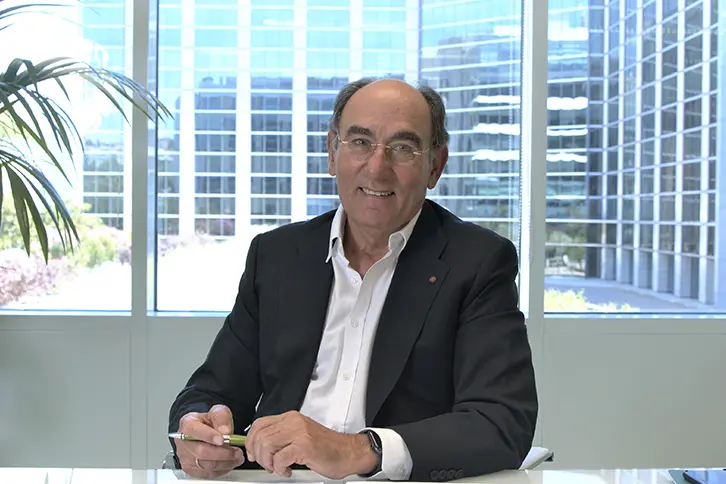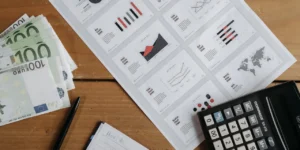
- Europe, autumn or spring is the new book from Zenda. An essay, edited and prefaced by Alfonso Guerra, in which diplomats, journalists, professors, scholars, scientists and historians have expressed their views on Europe.
- Below, we reproduce the introduction written by Ignacio S. Galán – Executive Chairman of Iberdrola- to this work.
For my generation, being pro-European was the credible promise of a clear path to a consolidated democracy and a market economy oriented towards the social welfare of all Spaniards. We believed that opening up to the outside world and to modernity would allow Spain to attain its rightful place on the continent and in the world. How many times I have discussed this with my dear Manuel Marín, a great Spaniard and a great European.
Today I still firmly believe that this “European-style” model, which transcends any false antagonism between competitiveness and solidarity, is also the answer to the new and serious challenges facing us. The European Union must no longer seek, as it did eighty years ago, to arbitrate mechanisms of balance and concord among its members, but to establish a common framework that will enable it, like the Spain of the eighties, to play the global role it deserves.
Like many of the prestigious personalities who sign these articles, all admired and some great friends, I have been a privileged witness of how the hopes we placed in the construction of the Community became a reality for Spain and also for the rest of Europe. Some opportunities crystallised as we had hoped, and others were frustrated or fell by the wayside, but I believe that the reason was never the Europeanist project, but rather its insufficient progress.
At the time of the fall of the Berlin Wall, I was working in the German town of Soest, managing an industrial plant. Overnight, a consolidated and prosperous country set itself the goal of reunification, but how to deal with the convergence of such disparate realities without undermining the common project of a new Federal Republic? Apart from the great merit of the Germans’ planning and execution, one of the secrets of their success was that the issue was never seen merely as a national problem, but as an opportunity for the entire continent. And European society rose to the occasion: German reunification went hand in hand with the Maastricht Treaty and a period of great progress towards integration.
Returning to Spain, who can deny the political, economic and social transformation that the country has undergone in recent decades as a result of its integration into the European Union? I also experienced it first-hand in the Basque Country, when a group of politicians, businessmen and leaders of other civil society institutions decisively tackled an industrial reconversion that was essential and which always had a European horizon. As a result of negotiation, generosity and the courage of everyone, all obstacles were overcome: the Bilbao we know today is a good symbol of the success of this transformation.
In short, European integration has been a key factor in our political, economic and social progress. It is an imperfect project, always unfinished, but if we look at it with a historical perspective, its value is clear.
I do not claim to provide definitive answers, but I do want to share a conviction. Today’s problems are not yesterday’s, but the solution remains the same: more Europe.
In 1988, the Italian economist Cecchini wrote that well-known report on the “cost of non-Europe”, giving rise to an exercise that is still essential to carry out on a regular basis: how would we have dealt with the pandemic or the war in Ukraine without a united Europe? Once again, crises have also been opportunities for structural progress: the management of vaccines, European recovery funds, the united response to the situation in Ukraine… Few doubt that, at these crossroads, fragmentation would have led to failure.
But we should not be under any illusion: if the Union shows us the way out in times of crisis – which hopefully will be short-lived – it is because it also makes us stronger on a permanent basis. That is the great lesson we must learn. That is why we must also look to Europe for the solution to those other structural problems which, unfortunately, will not disappear through a one-off exercise of courage.
A clear example of this is the response to the great challenge before us, climate change. If we want to turn our weaknesses into strengths, we must free ourselves from dependence on fossil fuels, whose volatility and geopolitical implications we are suffering in environmental and strategic terms. And we have the solution. We are even creating it in Europe and exporting it worldwide thanks to research, the commitment of some and the commitment of many companies of all sizes. Electrification offers us the path to decarbonisation, energy independence, the balancing of our external balance and the consolidation of a competitive green industry that generates quality employment. Those of us who started down this path more than 20 years ago, because we believed that the energy transition was not only an economic opportunity but also a moral obligation, are enthusiastic that this winning bet is now in the majority. But we must accelerate decisively to take advantage of it.
For this and for many other reasons, business and citizens must engage wholeheartedly in the European project, not as mere believers in an unalterable truth, but to continue to shape it and explore all its virtues. My experience is that many are already doing so at various levels. For years I have been very active in the European Roundtable for Industry, which brings together the major European industrial companies. For some time now, I have been observing the commitment of those of us who make up the Roundtable to be part of the solution, directing our activity and our investments towards areas that promote competitiveness, decarbonisation and the social well-being of Europeans.
And for this, national routes are never favoured, however fast they may seem. We all know that only a strong and complete Internal Market will allow us to compete in an increasingly integrated world. And for this, we need common and stable European policies, tax harmonisation and speeding up of administrative procedures.
Throughout these pages, the reader will see that the visions of Europe are not uniform. Each author takes his or her own approach, based on personal and professional experience, but there is a common thread running through them all: the profound conviction that Europe is also a stake in the future. The Union is above all a vanguard of political, economic and social organisation, which is why its final chapter has never been written. We face new problems, it is true, but we have the formula that has given us the greatest period of peace and prosperity in our history: more Europe. Let us continue to explore it and to reshape it.
Source link: https://www.iberdrola.com/









